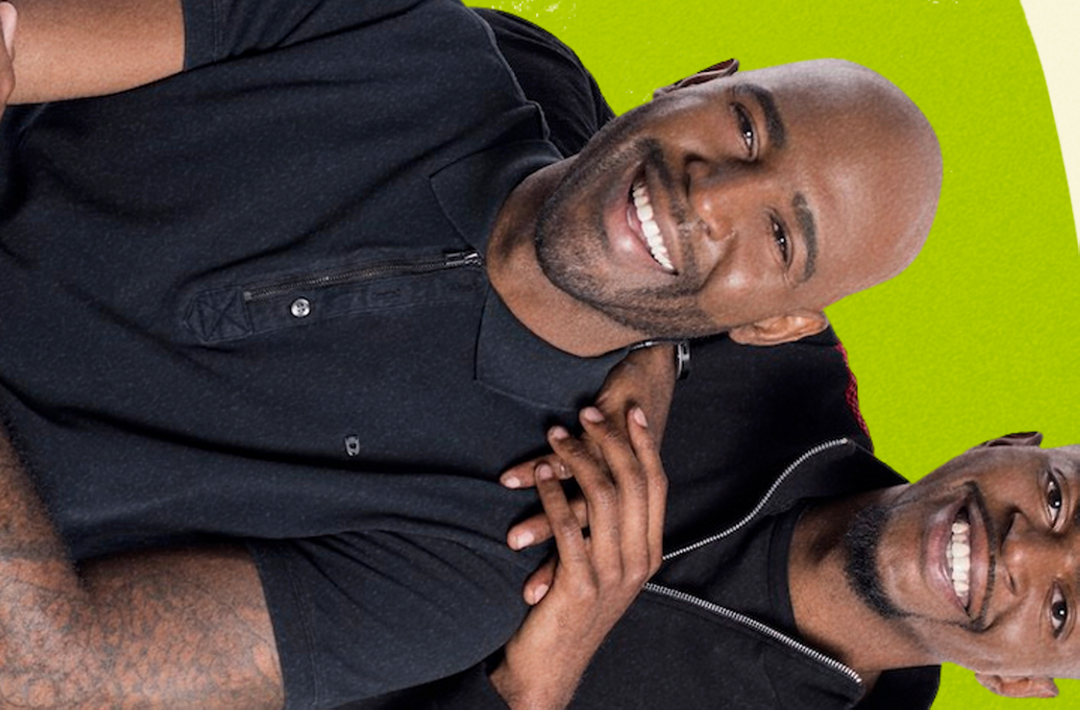Raising Black children in America is complex. While there is no singular experience of being Black in the US, we do know that our Black children have plenty to be fearful of as they grow up—police brutality, health disparities, systemic racism in general. It is our job as Black parents, and Black queer parents specifically, to teach our kids how to navigate a white supremacist and heteronormative culture—without losing their rich culture or sense of self-worth.
Karamo Brown, of the daytime talk show Karamo and Netflix’s Queer Eye, takes that job very seriously, which is why he decided to start writing children’s books with his 25-year-old son, Jason “Rachel” Brown. When I interviewed the pair recently, it was clear to me that this partnership was a natural extension of their relationship. Our conversation, an at-once lighthearted and weighty chat, seemed to directly embody Karamo’s parenting style. He parents with rigor, humor, and, most of all, love. Jason gushed about the positive influence that his father has had on his life—so much so that I could feel the strength of their bond through the phone.
Karamo and Jason are on a mission to help all children—and especially Black children— grow up in a world where they are able to express themselves freely and safely. Below you can read what the father-son pair had to say about their latest book, I Am Okay to Feel (on sale now), the importance of expressing feelings, and their hopes for future generations.
SELF: What inspired each of you to write your second children’s book?
Karamo Brown: This is a story about the journey of a father and son. As a society, we don’t talk about feelings enough. We have to teach our kids from a young age that it’s okay to not be happy. You can be sad and anxious. All of those feelings are valid. But society tells us that we always have to just be fine all of the time. It’s our job as parents to let our kids know that it’s okay to feel whatever they are feeling.
Jason “Rachel” Brown: Growing up, I didn’t see a lot of people express their feelings. My friends would call me the “soft one” because I was always talking about how I felt. My father created a safe space for me to share my feelings.
Karamo, how would you describe your parenting style?
KB: I am a communicator. I don’t believe if you make a mistake, you should be punished. In our household, honesty is rewarded, not punished. Parents are too impatient. We need to allow our kids to learn through making mistakes and then talking about how to course-correct. However, I am still pretty strict. If Jason keeps making the same mistake over and over again, then I will hold him accountable.
You mentioned the importance of teaching your children emotional boundaries. Teaching by example is a powerful parenting tactic. What boundaries do you have for yourself as a parent?
KB: I have a support system. And I am unapologetic about taking personal time to think freely and to just be an adult. I teach Jason to set aside time for joy.
And how would you describe your parents’ parenting style?
KB: Oh, there was absolutely no communication. My parents were rule-makers and I just had to follow the rules without question. I grew up with the traditional Black mantra of kids “being seen but not heard.” They did not teach me about emotional regulation. They didn’t even have that language. What they did teach me is that I wanted to raise my children differently. I believe that parents have to actively participate in the parent-child relationship because you aren’t just building a relationship, you are building a lifelong partnership.
I love that your book shows a Black dad teaching his Black son how to understand his feelings. Why was it important for you both to include this conversation about difficult emotions?
JRB: We thought it was really important to get the message—to talk openly about your emotions, even the negative or hard ones—out to people, especially those within the Black community. This story is empowering. If you can’t express your feelings, then you won’t be able to form deep and meaningful relationships with others.
KB: The media can make the Black experience look monolithic, but there are so many intersectionalities at play. We need to show all of our experiences and break the myth that all Black father-son relationships look a particular way. Children growing up understanding the complexities of human experiences is a beautiful thing. We wrote these characters to coincide with imagery that will hopefully inspire people to be more loving.
Jason, how has having a joyful Black queer dad influenced you?
JRB: Having a Black queer dad is definitely the coolest thing that I have ever experienced. My dad is loving and nurturing. Plus, he gives me great tips on how to furnish a house.
KB: I bring my authenticity into all my relationships, including my relationship with Jason. I am not afraid of my femininity or my masculinity. As a queer parent, I have the freedom to not play a gender role. This freedom allows me to think and live outside of a box.
Karamo, I truly believe that you are your ancestors’ wildest dreams. What does that mean to you?
KB: On my daytime talk show, every day I walk onto that stage and I think about Bayard Rustin and all of the ancestors that came before me. I think about all of my ancestors’ stories that were never told. I often wonder how they would feel knowing that I, as a Black queer man, have a national platform to talk about important issues, including feelings.
I also recognize that one day I’m going to be an ancestor, and I dream about what it would look like for a Black queer president and his partner to walk out of the White House with their kids playing on the White House lawn. I dream about a young Black kid who is interested in science and then grows up to cure cancer. One day when I am an ancestor, I hope that I get to be a spiritual guide to help Black children achieve their dreams.
Do you have any plans to write a book that tackles how your Black queer identity positively influences your parenting approach? If so, can we please coauthor it? I had to ask!
KB: Jason is nodding his head saying, “Yes, let’s do it!” Anything is possible.
This interview has been edited and condensed for length and clarity.


